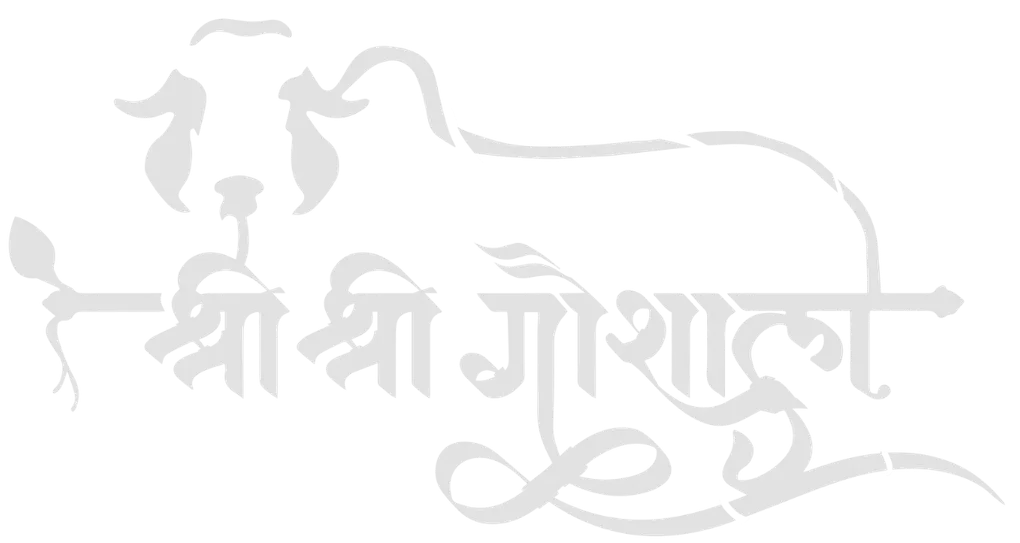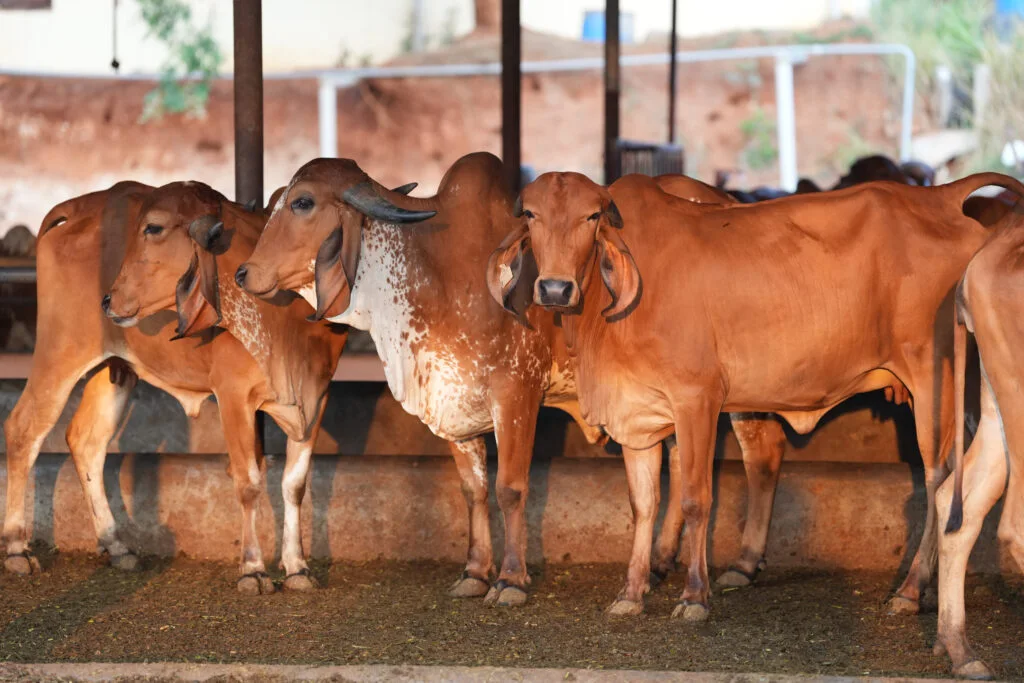India is home to over 40 officially recognized indigenous cow breeds, each evolved over centuries to survive local climates, support native agriculture, and enrich rural economies.
Yet today, most people can barely name a few — and worse, desi cows are being replaced by exotic breeds like Jersey and HF in the pursuit of higher milk yields.
But is quantity the only measure?
Let’s rediscover the true power of Bharatiya cows — in their strength, divinity, and sustainable contribution to humanity.
What Makes Desi Cows Unique?
Unlike imported breeds, Indian cows are built for resilience:
- Thrive in hot, dry climates
- Eat local, minimal feed
- Produce A2 milk, which is easy to digest and medicinally valuable
- Generate high-quality dung and urine, ideal for agriculture and Ayurveda
- Rarely fall sick, require fewer antibiotics
Their hump contains the Surya Ketu Nadi, believed to absorb solar energy and produce gold salts in milk — a concept now being explored by modern science.
Top Desi Cow Breeds You Should Know
1. Gir (Gujarat)
- Most popular desi dairy breed
- Sweet-tempered, high A2 milk yield
- Used globally for breeding better herds
2. Sahiwal (Punjab)
- Strong, heat-tolerant, high milk output
- Calm nature, easy to manage
- Increasingly popular in organic dairy farms
3. Hallikar (Karnataka)
- Known for extraordinary strength
- Ideal for ploughing and bullock cart pulling
- Sacred in many South Indian temples
4. Tharparkar (Rajasthan)
- Desert-hardy, dual-purpose breed (milk + drought work)
- Silver-white color and gentle eyes
- Good in low-rainfall areas
5. Ongole (Andhra Pradesh)
- Massive bulls with great endurance
- Exported globally for beef improvement (sadly misused abroad)
- Symbol of Indian rural pride
6. Kankrej (Gujarat-Rajasthan border)
- Active, disease-resistant
- Balanced in both milk and draught power
- One of the oldest known Indian breeds
A2 Milk vs A1 Milk: Why It Matters
Most foreign cows (Jersey, Holstein) produce A1 milk, which contains a protein called beta-casein A1. Some studies link A1 milk to:
- Lactose intolerance
- Diabetes
- Autism spectrum disorders
- Heart issues
Desi cows produce A2 milk, which is:
Easily digestible
Anti-inflammatory
Rich in Omega-3, CLA, calcium, and gold traces
Ayurveda calls it satvik — nurturing both body and mind.
Spiritual Value of Desi Cows
- Lord Krishna was a Gopal — protector of cows
- Ancient yajnas require A2 ghee from desi cows only
- Touching, serving, or feeding a cow is considered punya
- Temples house Nandi (bulls) as gatekeepers and seers
- Panchagavya from desi cows is used in Devi puja, Ganapati homa, Rudrabhisheka
When you protect desi cows, you’re protecting culture, agriculture, and consciousness.
Desi Cows in Sustainable Farming
- Dung acts as natural manure, restoring soil fertility
- Urine serves as pest repellent and soil tonic
- No synthetic inputs needed, making farming chemical-free
- Bulls support ploughing and grain threshing
They make small farms self-reliant, especially for marginal farmers.
Why Desi Breeds Are Disappearing
- Preference for high-yield foreign cows
- Inadequate support for gaushalas
- Lack of awareness about A2 milk and panchagavya
- Absence of financial incentives to maintain unproductive cows
Every neglected gaushala is a symbol of a lost tradition. But we can reverse this.
Sri Sri Gaushala: A Living Library of Desi Breeds
At our Gaushala:
- 1600+ cows of Gir, Sahiwal, Hallikar, Tharparkar and others
- Calves are not separated early — bonding is protected
- Old, sick, or dry cows are never abandoned
- Products like ghee, dhoop, gobar compost are made with dignity
We invite you to visit, donate, adopt, and be part of the revival of Bharat’s true wealth.
How You Can Help
- Adopt a Desi Cow – Support her care & health
- Buy Products – Ghee, incense, floor cleaner, etc.
- Educate Others – Share what you just learned
- Sponsor a calf, a shelter, or a health camp
In Conclusion: Desi Cows Are India’s Real Treasure
Modern India must not forget ancient wisdom.
Desi cows are not “less productive.”
They are more protective — of your health, land, air, and values.
Support them, and you support:
Better health
Cleaner food
Stronger villages
A more conscious nation

